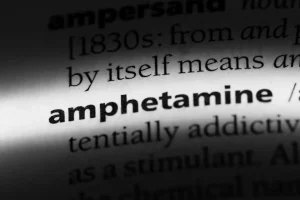
Athletes in professional and amateur sports are usually tested for drug use. So, too are people who have gone to rehabilitation or recovery centers to overcome addiction. MDMA is a dangerous drug that can cause long-term damage to your brain and lead to complicated health problems like overheating. However, if you find yourself addicted, you can find therapy and support groups to help you get better. Some people addicted to MDMA don’t realize they have a problem and may think ecstasy is just part of the fun at parties, concerts, and raves.
Take the first step. Start addiction treatment today.
Overall, MDMA is a dangerous drug that can Drug rehabilitation cause both short-term and long-term health problems. MDMA (3,4-methylenedioxymethamphetamine), also known as “molly”, is a synthetic illicit drug that has hallucinogenic and stimulant properties. MDMA is usually taken in pill form, but it can also be snorted, smoked, or injected. According to a 2011 study published in Therapeutic Drug Monitoring, MDMA can be detected in a person’s saliva for one to two days. MDMA, also known as molly or ecstasy, stays in your system for an average of 30 to 45 hours.
Does this test pose any risks?
We see this how long does mdma stay in your blood as an invaluable tool in fractured groups and communities, who could use an infusion of trust and the facilitation of clear, compassionate communication. Meth can have devastating effects on the human body, especially when used frequently and for long periods. Although some of these effects may reverse by stopping or reducing meth use, others are permanent. After a person ingests or smokes meth, it enters the bloodstream and quickly travels to the brain, lungs, liver, and kidneys. Methamphetamine is water-soluble and easily passes through cell membranes. This allows it to cross the blood-brain barrier rapidly and enter the brain.
- Short for methylenedioxymethamphetamine, it’s also referred to as Molly or MDMA (among many other names).
- People who take ecstasy often have trouble sleeping after they come down from their high.
- According to some research, people who take ecstasy very often may become dependent on it or addicted to its effects.
- For our society, the human suffering from trauma is immense and undeniable.
- Some heavy users of ecstasy report feeling more stressed out than usual while trying to get over their highs every weekend.
MDMA False Positive

That’s because the scalp is fed by a rich network of tiny blood vessels called capillaries. When someone takes ecstasy, small amounts of the drug bind to hair follicles in the scalp. A 2002 study published in Clinical Chemistry found that 24 hours after eight individuals were given 100 milligrams of ecstasy, the concentration of MDMA in their saliva was ten times the level in their blood. Ecstasy and its metabolites will show up in https://ecosoberhouse.com/ a urine test within two to seven hours after a person uses the drug. Using a blood test to identify ecstasy in a person’s system could mean the difference between life and death during an overdose involving an unknown drug. Half-life refers to how long it takes for a drug to reach half of its peak concentration in the body.
- There is nothing you can do to accelerate your body’s processing of MDMA.
- After ingesting, MDMA is quickly absorbed into your bloodstream, so can be detected within a couple of hours after use.
- MDMA can also negatively affect the mental health of users, causing them to feel anxious, paranoid, or confused.
Bedrock Recovery
- During the initial period, while there is unlikely to be a withdrawal akin to that of heroin, there may be some time of adjustment where the brain rewires following repeated drug use.
- Despite its relatively simple structure, MDMA elicits robust behavioral responses by binding with high affinity to a number of neuroreceptors and transporters.
- People who take large amounts of MDMA might still have traces of the drug in their system several days after use, especially when it comes to tests like urine or hair analysis.
Ecstasy can be detected in saliva anywhere between 2 hours and 10 hours after your last dose. Participating in mutual support groups can be a helpful adjunct to cognitive-behavioral treatment, as you receive support from others who are also involved in the recovery process. The peak of MDMA’s effects can last for 3 to 6 hours, depending on how much of the drug was taken and how often a person uses it. People who take higher doses or combine MDMA with other substances may experience longer-lasting effects, but this also increases the risk of harmful side effects like overheating, dehydration, or accelerated heart rate.
How Long Does Molly Stay in Your Blood?

Without testing, it is impossible for someone to know exactly what they are taking when they use Molly or ecstasy. Your insurance plan may cover some or all of the cost of treatment for drug or alcohol addiction. Our online health insurance verification system will estimate your in-network and out-of-network deductibles, coinsurance percentages and out-of-pocket maximums.


